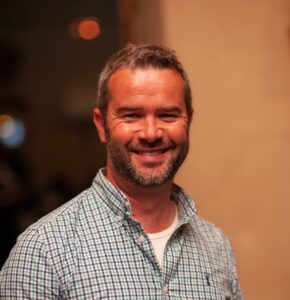Members of the GÉANT community often provide expertise and insight to support the creation of new programs and initiatives.
In 2015 a high-level panel of 11 experts, one of whom was Dorte Olesen (at the time a GÉANT Board of Directors member) presented to the United Nations Secretary-General, Ban Ki-moon, a proposal calling for the establishment of a Technology Bank for the world’s Least Developed Countries (LDCs), titled “Feasibility Study for a United Nations Technology Bank for the Least Developed Countries.”
It aims to enable researchers in the least developed countries, and those in Europe and other countries with more established research infrastructures, to collaborate with their peers across the globe for the benefit of all.
Fast forward several years and it is extremely heartening to see the Technology Bank for Least Developed Countries (LDCs) has been successfully inaugurated in Turkey earlier this year.
Cathrin Stöver, GÉANT’s Chief Collaboration Officer, who also made a substantive contribution to the feasibility study and participated in the high-level panel’s final meeting held in Istanbul in September 2015, in which the document was approved, explains:
“It is a great success that we now have the United Nations formally relying on NRENs in the least developed countries to implement their activities. Initially this will bring access to research publications through the World Health Organisation’s Research4Life programme. This is a wonderful example of the relatively small things we in the community can do that make such a huge impact to the lives of others, many thousands of miles away.”
The full text of the 2018 press release is reproduced below:
Technology Bank for least developed countries inaugurated in Turkey
Press Release
Gebze, Turkey, 5 June 2018 – A new United Nations body, which will address the challenges of the world’s poorest countries through science, technology and innovation, has been officially inaugurated in Gebze, Turkey today.
The UN General Assembly tasked the Technology Bank to strengthen the knowledge capacity of the world’s 47 least developed countries, foster development of their national and regional innovation ecosystems to attract outside technology and generate homegrown research and innovation. The Technology Bank has been the long-standing priority for least developed countries.
The inauguration of the Technology Bank’s headquarters was attended by high-level government representatives from the host country, least developed countries, in addition to development partners and United Nations officials. Participants included Dr. Faruk Özlü, Minister of Science, Industry and Technology of the Republic of Turkey, H.E. Dr. Mohamed Saeed Al- Sadi, Minister of Planning and International Cooperation in Yemen, in addition to H.E. Ms. Marianne Hagen, State Secretary at the Ministry of Foreign Affairs of Norway, and Ms. Amina Mohammed, United Nations Deputy Secretary General.
“Today’s inauguration is a major milestone in assisting the LDCs to utilise the benefits of science, technology and innovation. Leaving no one behind is key to Agenda 2030 and this new Technology Bank will help the most vulnerable as they aspire to forge a sustainable and prosperous future for the next generations,” said Ms. Amina Mohammed, United Nations Deputy Secretary General.
The new Bank is expected to improve the utilization of scientific and technological solutions in the world’s poorest countries and promote the integration of least developed countries into the global knowledge-based economy. The establishment of the Technology Bank marks the first Sustainable Development Goal (SDG) target to be achieved, SDG 17.8. Its achievement is highly symbolic, as it responds directly to the 2030 Agenda’s principle of leaving no one behind.
The Governing Council of the Technology Bank first met on 20-21 of November 2017 and adopted the 2018 work plan and budget. In 2018, the Technology Bank will start its operation and initiate baseline Science, Technology and Innovation (STI) reviews and Technology Needs Assessments in 5 least developed countries (Guinea, Haiti, Sudan, Timor-Leste, and Uganda) in collaboration with all relevant UN agencies. The Technology Bank will also focus on improving access for scientists and researchers to data, publications, and STI initiatives in twelve least developed countries (Bangladesh, Mozambique, Nepal, Rwanda, Senegal, Uganda, Tanzania, Bhutan, Burkina Faso, Liberia, Madagascar, and Malawi).
“We are delighted to be in Gebze today for the inauguration of a key institution to support the least developed countries. I would like to thank the Turkish Government for generously hosting the Technology Bank and other Member States who have pledged financial resources. I encourage other stakeholders to also make voluntary contributions so that collectively, we shall ensure a solid and sustainable financial footing for the Technology Bank,” said Ms. Fekitamoeloa Utoikamanu, High-Representative and Under-Secretary-General for the Least Developed Countries, Landlocked Developing Countries and Small Island Developing States.
The Technology Bank is a new UN institution. Its establishment is seen as a significant achievement for the development of science, technology and innovation in the world’s poorest countries. The initiative has been supported by the UN Office of The High Representative for Least Developed Countries, Landlocked Developing Countries and Small Island Developing States since 2011.
Media Contact: Ms. Louise Stoddard, Advocacy and Outreach Officer; Email: stoddard@un.og and Ms. May Yaacoub, Public Information Officer, UN-OHRLLS; Email: yaacoubm@un.org;Tel: 212-963-9798; Cell: 917-653-7343
For further information, please click http://unohrlls.org/technologybank/
Official Website: www.unohrlls.org Twitter & Facebook: @UNOHRLLS








Add Comment